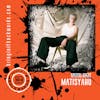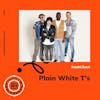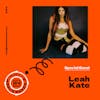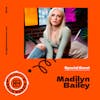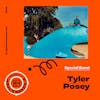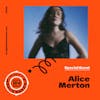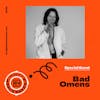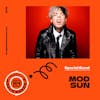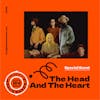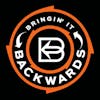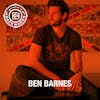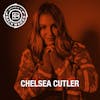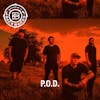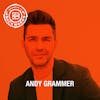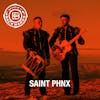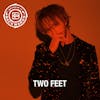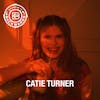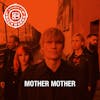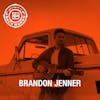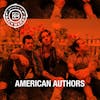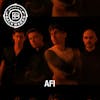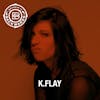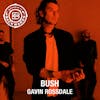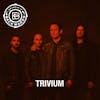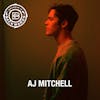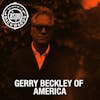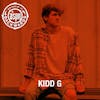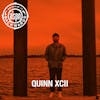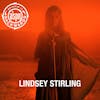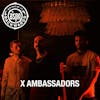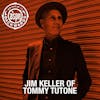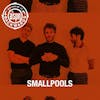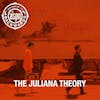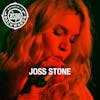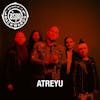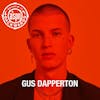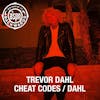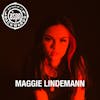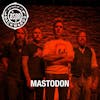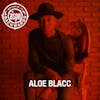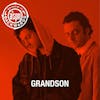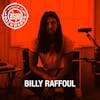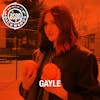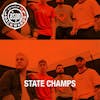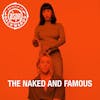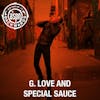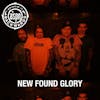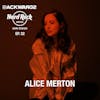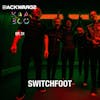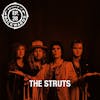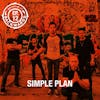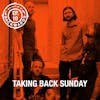Interview with Jon Coco
We had the pleasure of interviewing Jon Coco over Zoom video!
Music that leaves a lasting impression requires a wandering soul to tame it. That’s an apt description of the moments film composer JON COCO elicits with his melodic and lyrical...
We had the pleasure of interviewing Jon Coco over Zoom video!
Music that leaves a lasting impression requires a wandering soul to tame it. That’s an apt description of the moments film composer JON COCO elicits with his melodic and lyrical craftsmanship. Enduring hopefulness tempered by the unavoidable obstacles that life brings is at the core of Coco’s emotive perspective. His songs remind us that heartache and love are not to be mastered, but to be lived in and learned through. Perhaps Coco’s music resonates with those of so many walks of life because his own path has taken so many turns.
As a boy growing up in Boston, Coco immersed himself in the music of timeless bands like The Beatles, The Rolling Stones, The Who, and Pink Floyd. Tapping into the music of the ‘70s with an impressive vinyl record collection, he started writing original music and dove into performances in the late ‘80s Boston music scene.
Invited by an A&M recording studio head engineer to record songs for A&M, Coco gave in to the eventual lure of Los Angeles and the larger opportunities it promised. An early lesson would come when A&M Records closed their doors while his band was still recording their debut record. After two years as a staple on the Hollywood live club scene, Coco seized the opportunity to try his hand at creating music for a film trailer.
This pivot provided many years of work and included his compositions in the marketing campaigns for Oscar-nominated and award-winning films such as The Departed, Batman Begins, No Country for Old Men, Room, and numerous others.
Endlessly pursuing his own true north and identity, Coco relocated to Nashville in 2016 to trade the companionship of traffic and airplanes for a mini ranch with horses, donkeys, and chickens. This slower and more relaxed pace, exacerbated by the Covid lockdown, has cultivated an even more intense maturation of Coco’s signature style. “I came across a video of an Elliot Smith performance at Largo in Hollywood as a guest of Jon Brion’s show. It inspired me so much that two hours later I had ‘Living In LA’ written and completed! The floodgates were open. The next day, ‘Boxley Valley,’ which is a song about my home in Tennessee, came out of me just as quickly. Five days later, I had five songs done.”
There is a common element to his music that is as relatable for listeners of a major metropolitan area as for those in rural surroundings because their source is a man who finds the essential humanity in both. Those with an affinity for Tom Petty, Jackson Browne, and the Eagles rebuke a “regional” definition to their taste and relate to Jon Coco’s music similarly. In an America that seems so often divided, his music is a reminder to focus on the day-to-day of our own immediate experiences. Recorded with a group of talented friends hailing from Nashville and Los Angeles, Jon Coco is exhibiting with each song that music literally brings us all together.
We want to hear from you! Please email Tera@BringinitBackwards.com.
www.BringinitBackwards.com
#podcast #interview #bringinbackpod #JonCoco #NewMusic #zoom
Listen & Subscribe to BiB
https://www.bringinitbackwards.com/follow/
Follow our podcast on Instagram and Twitter!
https://www.facebook.com/groups/bringinbackpod
We'd love to see you join our BiB Facebook Group.
5 (1m 25s): What's going on. It is Adam. Welcome back to bringing it backwards. A podcast where both legendary and rising artists tell their own personal stories of how they achieve stardom. On this episode, we had a chance to hang out with John Coco over zoom video. John was born and raised in Boston, Massachusetts, and talks about how he got into music, picked up a guitar and started taking lessons. I think he said sixth grade gave it up quickly and revisited the guitar in high school. After high school is when he really got involved in writing songs and he ended up starting a band. They played a bunch around Boston, ended up getting some label interest from New York and Los Angeles had the opportunity to come to Los Angeles to record at a and M studios. 5 (2m 10s): And on the final day of recording the record, it's finally finished. They find out that ANM is closing their doors. So we heard that part of his journey, but it all leads into a gig that he ended up getting, where he was asked to help write music for a movie trailer. He talks about how him and his partner at the time stayed up all night to work on this movie trailer. They ended up getting the job, which led to more work for them in that niche market of the music industry. So he talks a lot about that. Getting jobs, you know, with no country for old men or the departed Batman Spiderman, he's done so many different films and it's such a cool perspective of that side of the industry, but he also talks about his new record. 5 (2m 54s): He has a solo album. He just put out, he talks about what inspired him to start writing this record. And we hear all about how it was put together. It's called chasing a dream. You can watch our interview with John Coco on our Facebook page and YouTube channel at bringing in a backwards. It would be rad if you subscribe to our channel like us on Facebook and follow us on Instagram, Twitter, and tick-tock at bringing back pod. And if you're listening to this on Spotify, apple music, Google podcasts, it'd be awesome if you follow us there as well and hook us up with the five star review. If you have time, it would mean the absolute world to us. 6 (3m 32s): We'd appreciate your support. If you follow and subscribe to our podcasts, wherever you listen to podcasts, 5 (3m 38s): We're bringing it backwards with John Coco. 7 (3m 41s): Thank you so much for having me too. I mean, I really appreciate it. 5 (3m 45s): You have such a cool journey from what I'm reading about you and like, you know, with, you know, writing music for film and that stuff. So I'm curious on that. And of course, we'll talk about your new record is 7 (3m 57s): Yeah. Cool. 5 (3m 57s): Well, so you were, were you born and raised in Boston? Is that what you said? I 7 (4m 0s): Was, yeah. 5 (4m 3s): Was that like 7 (4m 6s): Very suburban blue collar upbringing? Right. My dad is electrician mom, you know, a homemaker and, but I, but I got the music bug early on like 10 or 11 years old and started picking up the guitar. My mom got me a cheap guitar and, you know, took the, the guitar guitar lessons, but I didn't like it so much, so I dropped it. But then when I got an a, and then when I got into high school, I picked the guitar back up again. And then from that point on, I didn't look back 5 (4m 45s): What, like, 7 (4m 47s): I think it was probably 5 (4m 49s): Sure 7 (4m 51s): Then, then, you know, just the love of music, just, you know, the mechanics of it, just the, you know, putting chords together and, you know, way back when I didn't, I wasn't singing at all. So it was all about the music, the melody lines, you know, and, and how everything connected together. You know, it was like, like a puzzle piece. I mean, you know, pieces of a puzzle. So that, that was it. And, you know, high school girls and, 5 (5m 20s): And abandoned high school. 7 (5m 21s): Yeah. Well, it was, it was this little pickup, a bunch of guys that were in, in high school with me, we were called the five little seeds. Cause we had this 5 (5m 31s): Smoke, 7 (5m 34s): Hey, that's a great name. 5 (5m 36s): Let's 7 (5m 36s): Use it. But you know, nothing really serious until right after high school, when, when I really started writing songs, you know, you know, legitimately, and then 5 (5m 49s): That like reached on Boston at this point. I 7 (5m 51s): Was, yeah. Did 5 (5m 52s): You go to Berkeley or no, 7 (5m 53s): No, no. I'm I'm self, so self-taught wow. 5 (5m 58s): You 7 (5m 58s): Know, that, that one time I took lessons when I was 10 for about six months. That was it. And then I guess, you know, I have, I ha have an ear, you know, I, I hear something and I can, I can play it. And, you know, doing the composing thing is, is I use the guitar a lot, but I use the key, the keyboard and a piano a lot too. So I wouldn't, I wouldn't profess to be, you know, a piano player or keyboard player, but I can do it. W w when we're in a studio setting, let's say, I wouldn't be able to ask him anything live, but yeah. So no, no, no, no lessons really. And 5 (6m 34s): You said you started writing songs like out of high school. Like, was it something you decided when you graduated? Like I really want to pursue a career In music? Or like, how did that 7 (6m 44s): No, no, no. Well kind of, kind of, yeah, a little bit, because, you know, starting to put three chords together and in a little bit of melody lines here, and then I got, I got a scholarship to college for a springboard diving because I was, I was big on the swim team throughout high school. 5 (7m 4s): I was on the swim team too. It's funny because I just interviewed somebody like the, like the last interview I just did was also on the swim and swim in colleges, bizarre. 7 (7m 14s): So I went to college. I only, I only went one year and that, for that one year that I went to college music really started taking over from me and I was playing all the time. I played more than I actually went to classes. So that was the end of that right there. And at that point, that's when I really, really, you know, thought that, Hey, maybe I can, I can get, you know, give, give this a go and found a bunch of guys up in, in Boston to start a band. And then, then we were, we were off to the races and, and started writing original music. And it was like a, like a three-piece kind of power punk band, you know, back then in Boston, it was kind of, they call it garage rock, you know, this, this really dissonant more, a, you know, more attitude and emotion, you know, rather than, you know, very melodic and, and, and orchestrated, you know, songs. 7 (8m 11s): It was more like an attitude. And so that, that's what, that's what got me started back then a van, we called ourselves scared of horses. And then, and then a few years went down the road there and we changed the name. 5 (8m 27s): Did you guys like, I mean, was that kind of your full-time thing at that point? Like, were you pursuing it as like, okay, we're going to try to get signed, we're going to tour, like how, like, no, did that ever happen? Not with that. 7 (8m 39s): My point I was doing electrical work cause my dad and electrician. So that was, that was how I was paying the bills. And you know, those, those few years, you know, we started doing shows around the Boston area, Providence Wister, and we got, we got fairly popular. And so we started doing recordings. We wanted to, you know, record a record. And then at that, at that point, that's when, when things took a, an even more serious turn because the song sounded really great re recorded wise. And we caught a little bit of attention from some people, you know, out in Los Angeles and in New York city in the record record business. 7 (9m 25s): Okay. Nothing ever came of it, but we, you know, we had their ear. Right, right, 5 (9m 29s): Right. 7 (9m 29s): We, we just kept kept on going and, you know, played around the Boston Boston scene. We changed our name of the band to swag and, you know, get to think back. And that was in back in the early mid nineties that we had this name. And nobody really knew what, what swag was we did because I got a job in Boston as working on a crew that set up PA systems for one of the bigger clubs where all the touring bands would, would come through. And the tour managers would hand us, you know, t-shirts and baseball, hats, and key chains. And, you know, they'd go here, kids, here's some swag. So All my buddies hated it. 7 (10m 12s): They go, what'd you, what are your name and your bed? And like, swag, like, come on, man. 5 (10m 17s): I'm like, 7 (10m 17s): No, no, we're doing it. We're doing it. So 5 (10m 21s): Yeah. Swag like giving away free swag or like you got swagger. I dunno. 7 (10m 27s): Yeah. That's like, you know, dirt, weed or something like that. Yeah. 5 (10m 31s): Oh yeah. There you go. Schwag. I remember that. So that's, you got a little bit of attention from, you know, or at least LA New York and how do you make it to Los Angeles at this point? 7 (10m 44s): So, whereas 5 (10m 44s): That years later 7 (10m 45s): Serendipity really, but no, it, it, it like around 95 we had sent, we will send in our little recordings everywhere. And we caught the interest of the chief engineer at an M recording studios out in Los Angeles. Wow. And he loved the band and he said, I, dude, I want to record you guys. So the next, next two years he was coming out to Boston. We were jumping into his studio. He would record us and produce, and then we'd fly out to Los Angeles for a weekend. And he'd record us. 8 (11m 22s): Is your savings just sitting there? Well, put it to work a premium online savings account from PenFed earns way more than the national average. So you can get your savings working on earning you a vacation or a new kitchen, or that fancy exercise mirror apply at penfed.org/savings premium online savings account holders must agree to electronic delivery of account, opening disclosures, a monthly statements, $5 minimum required to open account to receive any advertised product. You must become a member of PenFed insured by NCUA and 7 (11m 52s): Are there. And I think we did this for a couple of years, you know, why we still played in the Boston area. And then around 98, David said, you know, you guys should come on out here. You know, we'll set you up at a and M recording studios, we'll do a record. And then we'll see what the label thinks. And we're like, sure, let's do it. And yeah, so we packed it up and we, and we headed out to Los Angeles and we, we S you know, crashed on a buddy of ours sofa and their living room chairs, and one of the spare, the storage rooms or something. 7 (12m 33s): And then, and then we were during the day and afternoons and early evenings were at Amnon recording studios, recording, what would be, you know, our debut debut record. So that, that was like, wow, we were, we were like, this is cool. You know? Yeah. That's, you know, the, the world was wide open at that point. We didn't, you know, no real expectations about which starting to think about maybe this, you know, man, you know, we're hoping maybe this could, could work out. So, and right, right. When we get into the mix phase of, of a handful of songs, we're in the, we're in the S one of the studios and the, one of the, a and R guys came in and he was like white as a ghost. 7 (13m 18s): And we're like, but some had heard what's going on. And he said, a and M records just closed their doors. And we're like, what? We couldn't believe it. And, and Dave, the chief engineer, he's like, are you kidding me? So 5 (13m 32s): He didn't even know. He didn't 7 (13m 33s): Know either. Right. And 5 (13m 35s): So he's like, well, now I'm out of a job. 7 (13m 36s): Right. So w all that was, that was a total bummer right there. Yeah. And so, and I'll never forget, the drummer said 50 plus years, this label has been around and they decided to close the day that we're almost finished. 5 (13m 51s): Yeah. 7 (13m 51s): So we're all devastated, really, you know, the studio itself and us label personnel, everything. And, you know, we thought, well, well, that's it, you know, what are we going to do? And, but we had the songs because we didn't really sign the dotted line at that point. So, yeah, 5 (14m 10s): I was going to ask you that. So you actually still have the recordings and everything were yours still. So you were able to take them with you. 7 (14m 17s): I did. So we, we at, and, and at that point we started playing in Hollywood quite a bit. We had played almost every club at, at that point. And we started to build a little following in Hollywood 5 (14m 31s): Where you playing just like the local clubs around there, 7 (14m 34s): You get all the 5 (14m 34s): Whiskey and 7 (14m 37s): The Viper room. And there was a place called the gig on Melrose. And there was a crappy little crop club up in Santa Monica Boulevard called the garage. And we played, played all of them. And so, you know, we, we had, we finished, we, well, what really happened was, and I'm recording studios was on the a and M lot. So when they, when they shut down the, the label operation, the studio was in limbo. They really didn't know what was going on. So they never told them to close the doors and they never gave him. They never told him, you know, what was up. So they just, they just continued to operate. They were getting there, they were still getting their paycheck. 7 (15m 19s): So, 5 (15m 19s): Okay. So we were able to essentially, like the label essentially was closed, but then the studio, they hadn't quite shut down yet. It's the bands coming in and recording. Got it. 7 (15m 27s): Okay. And every day they didn't know what was gonna happen. Right. So, but, so we were able to go in and finish the record. And what ultimately what ultimately happened was that Henson, you know, the Muppets Henson had bought the a and M lot. And they told the recording studio that you guys are safe. We're going to keep you intact and, and going. So ultimately they, they, they survived all that and they, they ended up 5 (15m 56s): It is Jim Henson. Is it still Jim Henson studios now? Yeah. Wow. A guy went to college with his brother, works there as like a mixer engineer, some 7 (16m 6s): Studio it's true. It's 5 (16m 8s): Crazy. Yeah. They realize it's the same lot or the same studio. 7 (16m 11s): They took the ANM sign down and put Kermit the frog up there. 5 (16m 16s): That's awesome. 7 (16m 18s): On LaBrea and Hollywood Boulevard. So anyways, yeah, we, we were able to do that. So we had the, the, the record and we shopped it around a little bit, but, but no one, no one took it. So, you know, we just decided, all right, well, now what we're going to do with muzzle, just keep on playing in Hollywood in which is what we did. And then add our shows that were playing. There was, there was a lot of editors, film editors, and producers and directors that would come see our show. And we got to be friendly with, with quite a handful of them. And one, one day, one of the editors asked us if we would play a party, an annual party that he had, that he had had at his, at his place up in the Hollywood Hills. 7 (17m 7s): And we said, sure, we'll play it. We'll do a bunch of covers. We'll play some originals and all that. And we did, and we did the party and we stayed up all night that it was like, you know, one of those classic Hollywood parties that, that you read about. And like two days after that, we got a phone call from one of the editors asking if we'd like to submit some music to a movie trailer that he was working on. 5 (17m 34s): And we said, well, 7 (17m 35s): Yeah, sure. W the next question was, when do you need it? And he's like, tomorrow, we're like, oh 5 (17m 43s): Shit. Yeah. 7 (17m 46s): Tomorrow, are you kidding me? Right. It was already like four o'clock in the afternoon. Did 5 (17m 51s): You have like the F like, was it just submit a song or did you get to look at the, the edit of the trailer or anything of that? 7 (17m 58s): Yeah. So, so strangely enough, too, back then they were, they were running, they had runners run back and forth. I think it was a CD back then, or a beta or something. Nothing, you know, it was, it wasn't, nothing was flowing through the internet at this point. It wasn't, it wasn't data that, that good of a technology. So the guy said, oh, we're going to send a runner over with the pitcher and a, you guys can cut to this, and this is what we need, you know, orchestral piece type music. And, and we're like, we're scared. Like, okay, we've got to give it a go, let's do it. And we call it made a bunch of phone calls and got a, a Cubase recording system. 7 (18m 38s): It's, it's, it's similar to pro tools. 5 (18m 40s): Okay. 7 (18m 41s): We stayed up all night trying to do, 5 (18m 43s): Ended up going to buy a recording rig just 7 (18m 45s): Borrowed this. No. No. 5 (18m 47s): Okay. Okay. So you borrow it and basically to just be like, okay, let's see if we can w if we can pull this off, I mean, yeah, got you. Okay. 7 (18m 55s): And we, you know, we stayed up all night. This is the we as Jamie and I, that was the guitarist in my band, Jamie Anderson. And we stayed up all night to do this piece of music. And we finally finished it like, you know, seven, eight o'clock in the morning, the runner was going to come at like nine 30 in the morning to pick up all our stuff. So we had a little bit of, a little bit of 5 (19m 15s): Cushion and, 7 (19m 17s): And it was like a 55 second piece of music that was orchestral and had some drum stuff on K kind of upbeat, you know, and I was trying to figure out what, what movie it was back then. I thought it was Sandlot too. But that, that came a little bit later and I'm forgetting what that first movie was that we did for it. So anyways, the guy comes and picks, picks it up from us. And a few hours later, we get a call from the editor and he goes, we love it. We want to use it. And we like, 5 (19m 45s): Wow. 7 (19m 47s): Yes, that's cool. Thanks. So we get to, you know, try to figure out how much we asked a few editors that we knew how much we should charge for this. And we came up to a, a number of $6,000 and we were like $6,000. Holy mackerel. So they accepted it. And that was it. We were in business and Jamie and I thought, oh my gosh, this is, this is crazy. You know, so the very next day we went out and bought a pro tools rig. 5 (20m 20s): We 7 (20m 21s): Set up shop and the phone calls started coming in. We would do, we, we just, it just, it just took off from that point we were doing before you knew it. We were doing music used for Spider-Man one that came out spiral too. I mean, we just, we happened to just hit, you know, the, the right combination of people that were working on these particular projects. They loved our music. We w we were timely with it, and we weren't price gouging. Any of them, we kind of figured out what, you know, the lay of the land, a little bit of, of where we should be. And so it just, it just skyrocketed by, and that was in 2000, 2001 by 2004, we were doing almost, you know, all the movies that were coming out of Hollywood, at least we're getting a cue or two in the movie trailers for, and television spots for, you know, the big blockbuster films. 5 (21m 16s): Well, so when you say Q, just cause I'm not too familiar with this side of the industry, really, I mean, I've interviewed a handful of people that have, have done this, but I'm curious. So like you, at first you get the trailer and you, you write the music to the trailer and then once you get other pieces, is it like, okay, we need music for this scene. We need music for this bit. Like how, like what, what were they pitching to you 7 (21m 42s): In, in the trailers? You know, they're quick, they're quick edits usually. Right? So it's more, it's more about a Mo emotion, you know what I mean? And, and excitement, right? So they're always uplifting type pieces and it's, you know, they they'd give an example of a piece of music that they would like that, you know, we could do a likeness of, or just, you know, a stylize, you know, John or something that, that they wanted. And we would, we would just go for it. And then way back then in the beginning, we would get the actual picture itself. So we could pace, you know, the piece of music that, that was needed in that particular part of the trailer or the whole trailer itself, or, you know, whatever, whatever they were, they wanted us to do. 7 (22m 26s): And so it was, it was, it was that kind of back and forth with the producer and the editor of the movie trailer in, in what they wanted, you know, and we'd go back and forth a little bit, do revision sometimes here and there, once in a while would hit, would hit the grand slam on the first version. But usually there'd be a little bit of tweaking here and there, but it was mostly, you know, instrumental orchestral element to it, you know, big drums, you know, heavy guitars sometimes. And then, you know, there was an, you know, there was a handful of sound design type things that were going on, you know, more, more emotional type sounds and, and, and see, you know, soundscapes. 7 (23m 13s): And so in a music cue could go anywhere from like five seconds to, you know, a minute and a half, a minute, 55 seconds. They always laid, you know, somewhere between there 10 seconds and a minute, you know, sometimes they would edit it shorter as well. And we'd, you know, we'd still get, we'd still get a fall, the full amount of 5 (23m 37s): Interesting. Okay. So, well, how long did you do that for, are you still doing 7 (23m 41s): I, yeah, I still do it on a very small scale, 2000 and 2008, 2007 ish. Jamie and I dissolved the partnership. We had a partnership doing this from 2000 at about 2007, and we call the south swag music group because the band was swagged. So we'd drive, we needed a name. So that's cool. And then I, I continued on my own as lucky 13 music. Jamie did, did his with Jay tracks and he also got into voiceover. So he's kinda sh he was kind of shifting a little bit to me. I was kind of drifting and he was shifted. I was drifting. 7 (24m 21s): I didn't know what the heck was going to go. You know, I, at that point, you know, I completely stopped the artist life of my, myself completely went into this composing thing. And so 5 (24m 34s): This is essentially still art, right? I mean, you're writing songs for 7 (24m 38s): Yup. Creative. I mean, it was, there was a, there was a cookie cutter element to it. You know, one time we were, we were doing music, got asked to do music for basic instinct to, right. So that, that movie completely tanked, but they wanted to change the hunt kind of formula for, for trailers, trailer music and asked us if we could do this different approach. And it was, it was using actually elements from Jerry Goldsmith score from our basic instinct, one to kind of beef that up or something like that. Well, the, you know, the, the, the focus groups that, that look at these things, they didn't didn't test well. So they said, let's go back to the old way of doing it. 7 (25m 21s): So there was a, there was a chance, there was a moment there where they were going to change things a little bit, but it's, it's pretty much the same stuff. You know, 5 (25m 28s): Now they kind of use, like, now they'll pay for what writes a big songs and do that, put those in the trailer or that something was happening then. And you would just add the in-between elements 7 (25m 37s): That was, that was happening. Then that was happening then. But I, you know, I don't know if they do it as an, in a larger scale than, than what they used to, you know, back then, strangely enough, there was only like six, six different entities that were doing this trailer music. We will, one of them. And then by 2007, 2008, there was like, I would say, there's musicians coming out of the woodwork wanting to try to do this, 5 (26m 2s): This, 7 (26m 3s): This niche of the business that we had no idea existed when we started. And then we made a great career out of it. You know, everybody, you know, now it may. And if I had had to do this all over again, it's it's way too daunting. I don't even think I'd be able to the 5 (26m 18s): Daily oversaturated with people now, 7 (26m 20s): There's way, there's way too much. There was a point there where everybody was giving music away for nothing. So it was, it was diluting the, the, the value of it all too. I mean, it was just, it was a crazy time between 2008 and 10, that things were going on, but now there's a lot of, a lot of different companies, you know, there's a lot of musicians that will submit music to some entity that collects all these, these pieces of music and, you know, gives them 50% of publishing and like maybe a couple hundred bucks or something. And then, 5 (26m 51s): Yeah, there's companies that will, now you can pay for like a service, like almost like a Netflix that you can, the 7 (26m 56s): Reality of it is 5 (26m 57s): Log or whatever. 7 (26m 58s): Yeah. The reality of is those guys are making thousands of dollars on these cues. You know, we didn't, we, we didn't have one. We, you know, we were our own entity with the relationships, with the, with the movie studios and the trailer houses. So, you know, we didn't have to give away anything to anybody. You know, we, we had it all and, you know, you get a lot of money for some of these music cues. If, you know, even if you do a cover song, you know, sometimes we'd would do cover songs and that would be a master sync, a license, and you get a good amount of money for it, depending on the popularity of the song that, that they're going to cover. So, wow. Yeah, really, really, I mean, crazy if you asked me back in, you know, what I was playing in Boston, whether I would be doing something like that, I'd say you're crazy. 7 (27m 44s): There's no way, you know, as I was, you know, I wanted to be a rock star back then, you know, you to fall in the footsteps of the Beatles and, and bono from U2. 5 (27m 54s): Yeah. Which is interesting because even the bands, like I had a, I was interviewing somebody and like, they had this perception of this band that came out of their town. He's in this band now, but he was younger than the band, and then they got successful. And then he ended up joining the band when they needed a player recently enough. And he was just saying like, yeah, it was crazy to see, like I thought these guys were like millionaires and they're doing all this stuff. And then you find out that, like, that's not even a fraction of what was happening, but the color of like being, having the songs on, you know, certain things now, I mean, this is not that long ago. 5 (28m 35s): And kind of the idea of like, there, like the, the, the Beatles and obviously the Beatles, but like the, the, the, the rock stars of like the eighties, when it comes to like the hair metal bands that were just like girls and partying and all that stuff. Like it's so few and far between now with the way music is consumed, it's just a different world. 7 (28m 57s): Absolutely. 5 (28m 58s): Absolutely. That's funny. Well, that's awesome that you guys were able to cut through and do that. I mean, still be creative, still have a career in the music industry and even in the film. I mean, that's awesome. 7 (29m 9s): Yeah. Yeah. I really enjoyed it. You know, there was nights, there were like, you know, like anything right. Trying to get through the night, you know, but, but for the most part, it was cool. I do, you know, later on in, in the, in the 2010, 12 ish, I did, we did start to play again, you know, we'd do one show a year in Hollywood and people would come, come out to see us play. So, but I, but I never really started performing again, like I used to prior to this composing thing until I moved here to Nashville, and then I started writing and playing, and again, you know, back, you know, a few years prior to that, it was just one show a year in, in, in Hollywood. 7 (29m 56s): And so moving here kind of changed 5 (29m 59s): To move that changed the whole. Yeah. It changed how 7 (30m 3s): I wasn't quite sure, you know, the trailer stuff and the music cues I had, you know, I have two boutique libraries that, that you'd license off of, but the industry had changed a little bit and, you know, I didn't, I wasn't, I wasn't like going after it, like, you know, and, and it wasn't coming to me like it was, you know, the years prior. So I wasn't quite sure what to do. So I just started playing again, you know, doing acoustic things around here and re you know, writing crappy songs for a little while and, you know, just kinda getting back into getting that muscle, working again, to, to playing and singing. 5 (30m 44s): And now you have a record out. 7 (30m 46s): I know it was crazy too. I mean, 5 (30m 48s): So tell me about this. Like, when did you decide to go let, I mean, obviously you were playing around town and stuff, but was it okay, let's, I'm ready to put a record out. I'm going to really push forward as, you know, as a, as an artist. 7 (31m 1s): So, you know, 0 (31m 4s): Hi, I'm Jason Miller, executive editor, federal news network. And I want to invite you and your colleagues to join us for our second annual duty cloud exchange. This three-day event, March 22nd, through the 24th we'll feature technology executives from the army, the Navy, the Marine Corps, the air force. And of course the defense information systems agency. So join us March 22nd through the 24th for the second annual DOD cloud exchange registered today on federal news network.com 7 (31m 32s): I had just before COVID hit, I was going to book some shows and I booked one in Los Angeles. We're going to do a writer's rounds. You know, two people from LA, Los Angeles, and two people from Nashville. We're going to do one here, here in Nashville. I'm going to do one in Los Angeles. And then that was all blown out the water. Cause the world's shut down, I think, March of 2020, or yeah, March of 2020, everything shut down. That was when the first show was going to happen. So I'm like, yay. Now what, you know, nobody knew what the heck was going to happen. So, so I just started to, you know, just start to keep writing little things. 7 (32m 14s): And there was one, you know, we have horses out here. So there's one day I was out in the, out in the barn and stall taking care of the horses. And I was just flipping through a YouTube and on the internet. And I came across a, a video of a performance of Elliot Smith. Joining John Bryan, John Bryan was he's a, he's a composer and a producer and writer, but back then, he was just a musician. He had a show every Friday night at Largo in Hollywood and everybody in the whole whole world down there came to see John Bryan play incredible musician multi-instrumentalist and he had this great, great show and he would have special guests come and play with them. 7 (33m 1s): And, and this particular one was Elliot Smith. And I matter of fact, I think we probably were at that show because when we were at an M and M recording studios, we used to go to this John Bryan Friday night Largo thing. So, and I couldn't quite remember anyways, I saw this Elliot Smith thing. So I said, I'll click on it and watch it for a few minutes. And I ended up watching the whole thing. It was like 40 minutes performance. And it inspired me so much that I came into the house and I started playing guitar. And, and, and within, within an hour I had the first song for the record. I didn't know it was going to be a record at that point, living in LA. 7 (33m 40s): And later that night I started coming together, another song Boxley valley, the next day I had that one finished. And then those four or five days after that, I had six songs done demoed, you know, and with, with, you know, just an acoustic performance with the melody lines and in the lyrics. Wow. And I'm like, okay, now what am I gonna do with this? You know, I really liked them. And I'm like, I guess, I guess I got an album going here. I'm, I'll, I'll keep on going. And so I did, I just, I just kept writing. And I was, I was kinda surprised that Elliot Smith had had sparked at that, that created Tivity in me. 7 (34m 24s): You know, usually over the years it had been David BOE. Every time I listened to David Bowie, he would, he would get the creative juices flowing in me, but this was kind of out of left field a little bit for me. I love, I love Elliott Smith and his music. And so, you know, in about two weeks time, I had about 10 songs and I started demoing them. I called up of, of a friend of mine, Sean Fichter, drummer, who here in here in Nashville, we had this little seventies rock cover thing going on for the last couple of years prior to COVID we'd, we'd get together and, and get a show down here in Leaper's fork at Puckett's. 7 (35m 5s): And we'd put on w we'd play a bunch of seventies, rock tunes, you know, that's awesome. And these guys, you know, Sean played was with Tim McGraw and Kenny Greenberg was guitar he's, he'd played with Kenny Chesney for the longest time. I th I think he just stopped playing with him. You know, these session guys that I had had met when I first moved here and we, we struck up a great, a great friendship. So, and when it came time to do the record, I asked Sean, if he'd like to draw him. And he said, sure. So he started cutting drums for all the songs that I demoed. And I called up my buddy, Jamie, my old band mate, that they did have the composing partnership ship with. 7 (35m 47s): He was still out in Los Angeles. I asked him if he wanted to join in and play guitar and bass and whatever he wanted to contribute. And he said, sure, let's do it. And, and then another friend of mine, Stephano, who's an artist in his own right out in Los Angeles, the final cup of Bianco. And he did some stuff. So we flew this, the sessions back and forth from Nashville to Los Angeles, did some guitar on the record as well. And, you know, a few months down the road, you know, we, we had, we had a good seven solid songs that, that I thought, well, you know, a few of these, you know, this, this, this could do something here. 7 (36m 29s): You know, there was one song that I revisited from a while back called time won't heal. But all the others were, were written in, in, in 2020 in, in that two months. That, 5 (36m 41s): Yeah, that's 7 (36m 44s): Right. 5 (36m 44s): Yeah. 7 (36m 45s): Oh my gosh. And I was so, so grateful and, and that these guys were willing to play on the record. You know, I remember one time getting a rough mix back and, you know, I usually wake up like before anybody does, you know, before even the sun comes up, I grabbed my coffee, like kinda stare out the window at the horses, in the barn and stuff, just thinking about things, you know? Yeah. And I'm listening to one of the mixes and I'm like, oh my gosh, this is pretty good. I think I really liked this actually, I think, well, I think, you know, I think I may want the public to hear all this stuff too. So that's, you know, so then, you know, I, I get in the mode of, you know, what I had done years past with the band back then is like, okay, I'm guessing I'm going to put a record out. 7 (37m 34s): So I gotta get, get all the moves together of, of doing that. And, you know, here we are. I 5 (37m 41s): Mean, now it's out right 7 (37m 42s): Now, it's out. Yeah. I, you know, I think I've gotten a lot of great feedback from it and, you know, independent, I'm not with a label or a publishing house or anything. So, you know, there's only so much, so much that I can do, but I'm trying to do my part to, to let, as many people hear this record as possible. You know, these, I like these little songs to grow as the phrase would be sure, you know, get as many people as possible to hear this. And, and so, yeah, it's, it's been really cool. I get to talk to people like you too. So I'm happy about that. 5 (38m 18s): Yeah. That's a great record. I, I listened to it before we got on this call and then I think, I mean, it's an awesome, yeah. I think it's a, it's a rabbit record and that's awesome that you're still doing shows and doing stuff around here. Since we both live around here, I'd love to come and catch you play and oh 7 (38m 34s): Yeah. That'd be, that'd be cool. You can do that shit. 5 (38m 36s): Yeah. And I appreciate you doing this interview, John. This has been awesome. 7 (38m 39s): Thanks, man. I really appreciate you having me. It was fun talking to you. I liked the word neighbors too. That's kind of cool. 5 (38m 47s): Cool. Well, I have one more quick question for you. I want to know if you have any advice for aspiring artists. 7 (38m 53s): Oh, interesting. Yeah, I do. Actually. I would say that if you really, if you really have passion for something, you gotta, you gotta stick to it. Right. You know, we get bombarded by a bunch of stuff in life. And as you get older, there's other, other things obligations that you need. But if you can S you can stay true and devote some time to your passion. Then I think you'd be better, better off for it. You know, as far as the trailer music and composing it's, it's, it's really, you have to have skill for sure. You know, but it's all about the people that you meet. 7 (39m 36s): So, you know, in, in the, in the, in the network that, that you become friends with and stuff like that, it's, it's that that's helpful. So I know, you know, join a community of musicians or composers or whatever, or producers and editors, and you know, that, that type of thing, but, you know, everything's subjective. It's so it's so hard in, in the, in the music and the acting world. But I think too, if, if you just, if you just stick, stick to it, stick to your guns, be yourself. And then, you know, you, you will succeed. It may take a little longer than you really would hope, but I think you would succeed.
Featured Episodes
Here are some great episodes to start with. Or, check out episodes by genre.
























